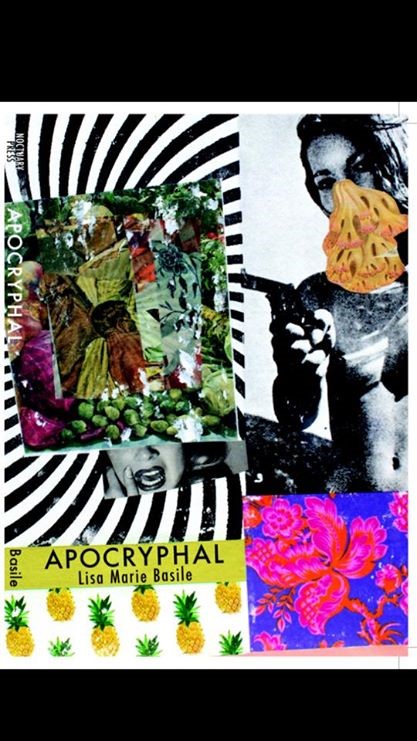90 pages, $12.32
Review by Sarah Gonnet
The path through Lisa Marie Basile’s poetry is lit with pulsating pagan fairy lights. Her poems are sparsely populated with voices searching for the true identity of their lovers and fathers. Apocryphal is a beautiful mess of confused sexuality, hidden in perfectly crafted verse. In this collection Basile gives us a series of images, flashes of another world, and then allows the reader to fill in the gaps and see the whole universe themselves. This gives her poetry an extreme personal relevance.
Apocryphal is Basile’s second collection; she is kept busy outside of poetry as an editor for various publications and is also the founder of the feminist magazine Luna Luna.
Essentially Basile is a storyteller. In her warped but eerily realistic tales, themes of abuse and an Alien-style fear of pregnancy (“I become obsessively pregnant with you…& abort you”) are displayed alongside a more traditional sense of tortured sexuality. Yet at the same time her poems work together to form a collective voice. This collective voice gives the poems a similar atmosphere to Jeffery Eugenides’ The Virgin Suicides. Except in Basile’s work the voices are almost all women. Women who live double lives: screaming in their vulnerability whilst also being powerful. This twists their collective vision into an intricate steampunk machine. Lines of thought and themes tick away in the background, while other themes are having their time in the foreground.
The world belonging to Basile’s poetic voices has a mythology of its own. For example, sometimes the voices behave like Egyptian goddesses, becoming the landscape they inhabit- “I sprawl out across the marina, until I become the marina.” This quote also indicates a key part of the process of Basile’s poetry, by which she gives the collective voice of her poems an extra layer. As if her writing were a combination of the power and surreality of Borges and the harsh honesty of Ginsberg, she embeds the landscape into her characters. Other biblically cruel but dazzling elements of the poems form further doors into the dark, spiral shell of Basile’s universe.
As I was reading the poems it struck me that the poet seems to be constantly fighting to maintain her creative identity. It appears that the poet might go through some form of depersonalization until she writes and finds herself, over and over again, in her poems. It is common for poets to go through this schizophrenic shift in themselves; yet it is something that Basile does spectacularly well. Her voices are pulled up into life like remarkably detailed puppets. These puppets freely speak lines such as “what life feels like now/ a fucked hole, a registry of sadness”; “all the sneaky negromaro in the cracks of our mouths”; and “I don’t own my own sexuality/ it is borrowed from somewhere” with self-assurance and a determination to exist.
Technically the poet is exquisitely skilled. She experiments freely with form and metre; arranging her poems with a constant eye out for fresh ways to position words on the page. Her voices reflect the idiosyncratic shape of her poems. They are divided in personality, yet they dance to the unique rhythm that the poet controls.
Reading Apocryphal is a journey through weighty beauty. The slim volume easily communicates the depth and detail of a novel; and the voices it contains rise and fall with the precision of a novelist’s multiple points of view. Yet the mystique and broken form of the poems take them beyond anything a novel could be. Lisa Marie Basile’s words bewitch their readers, forcing our brains into the awkwardly shaped mind-sets of her world’s isolated voices.
***
Sarah Gonnet is a writer, journalist and artist. She has written for The Guardian, Luna Luna, Sabotage Reviews, Survivor’s Poetry and Jotter’s United. Under the pseudonym Azra Page, she has published two autobiographical collections: Catharsis and Dull Eyes; Scarred Faces.
![[PANK]](https://pankmagazine.com/wp-content/themes/pank/assets/images/pank-logo-large.png)

